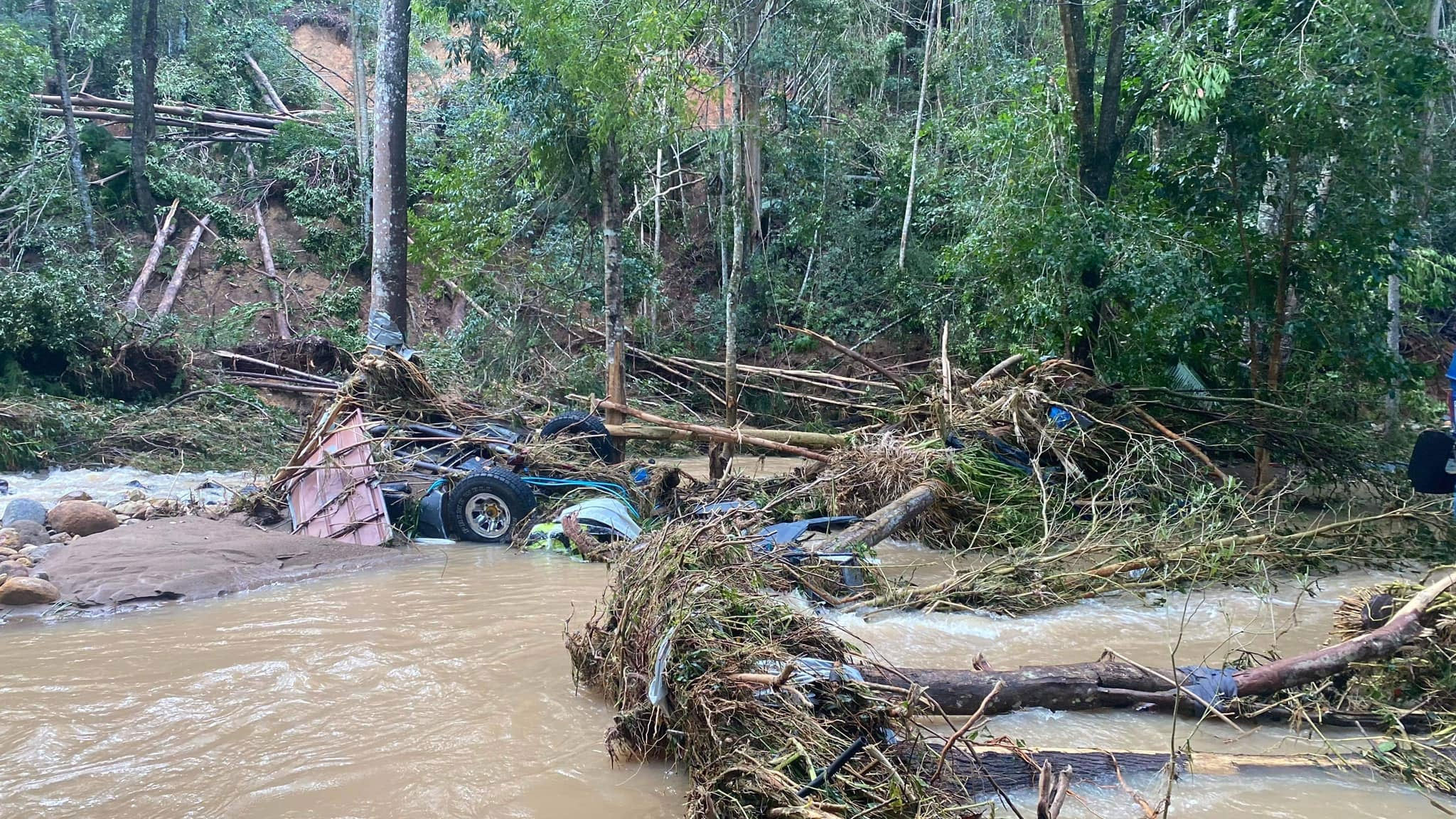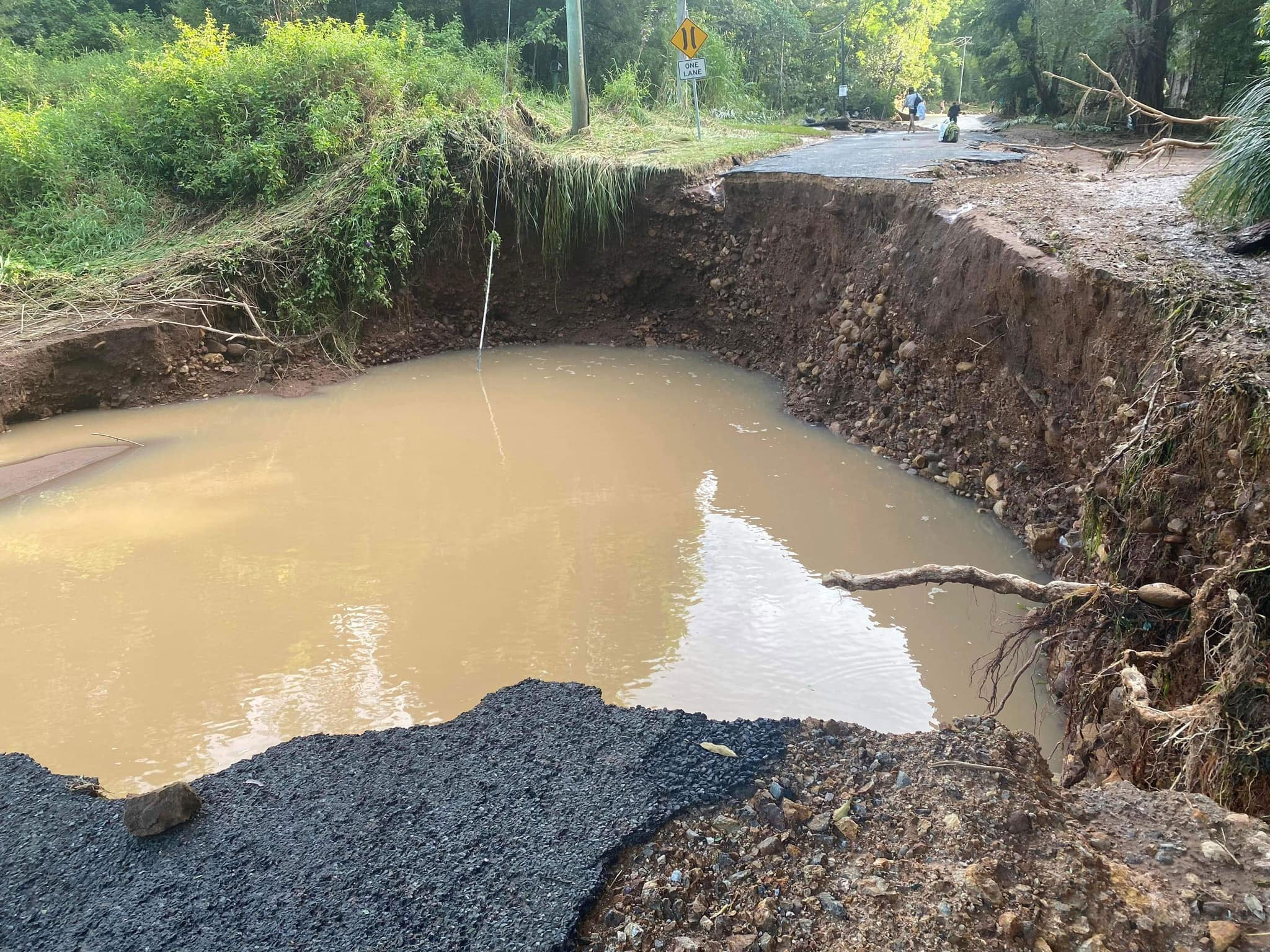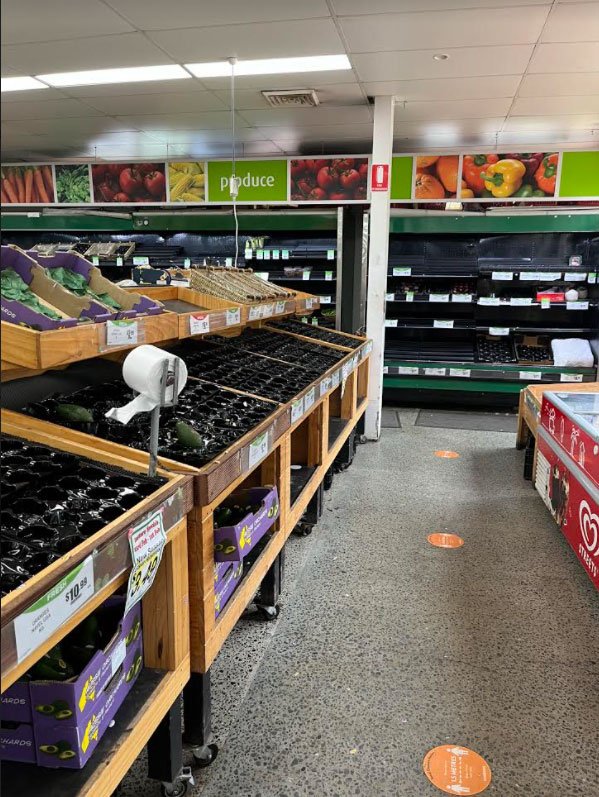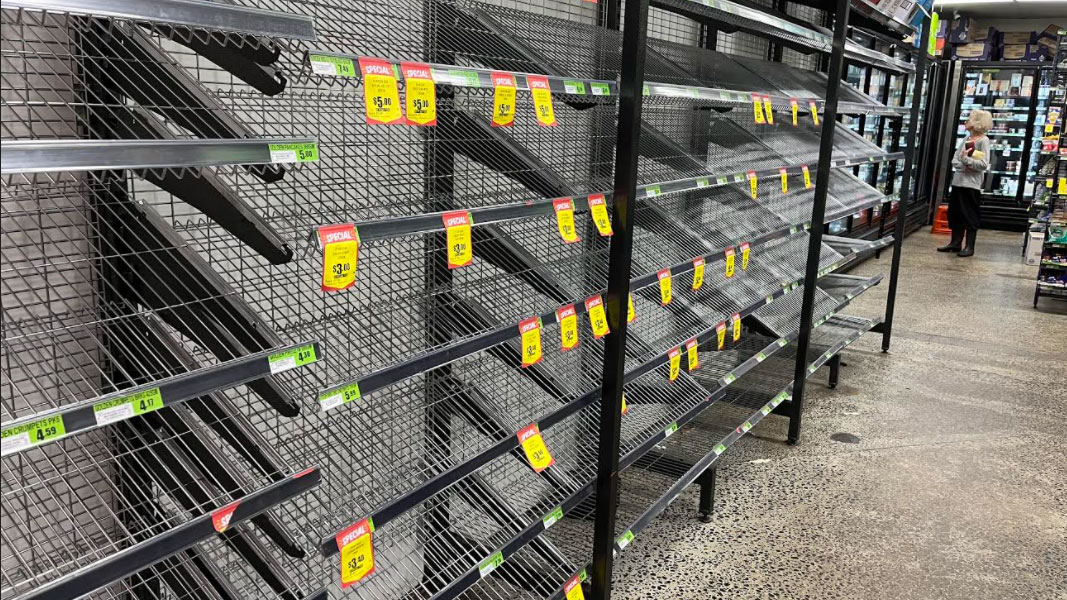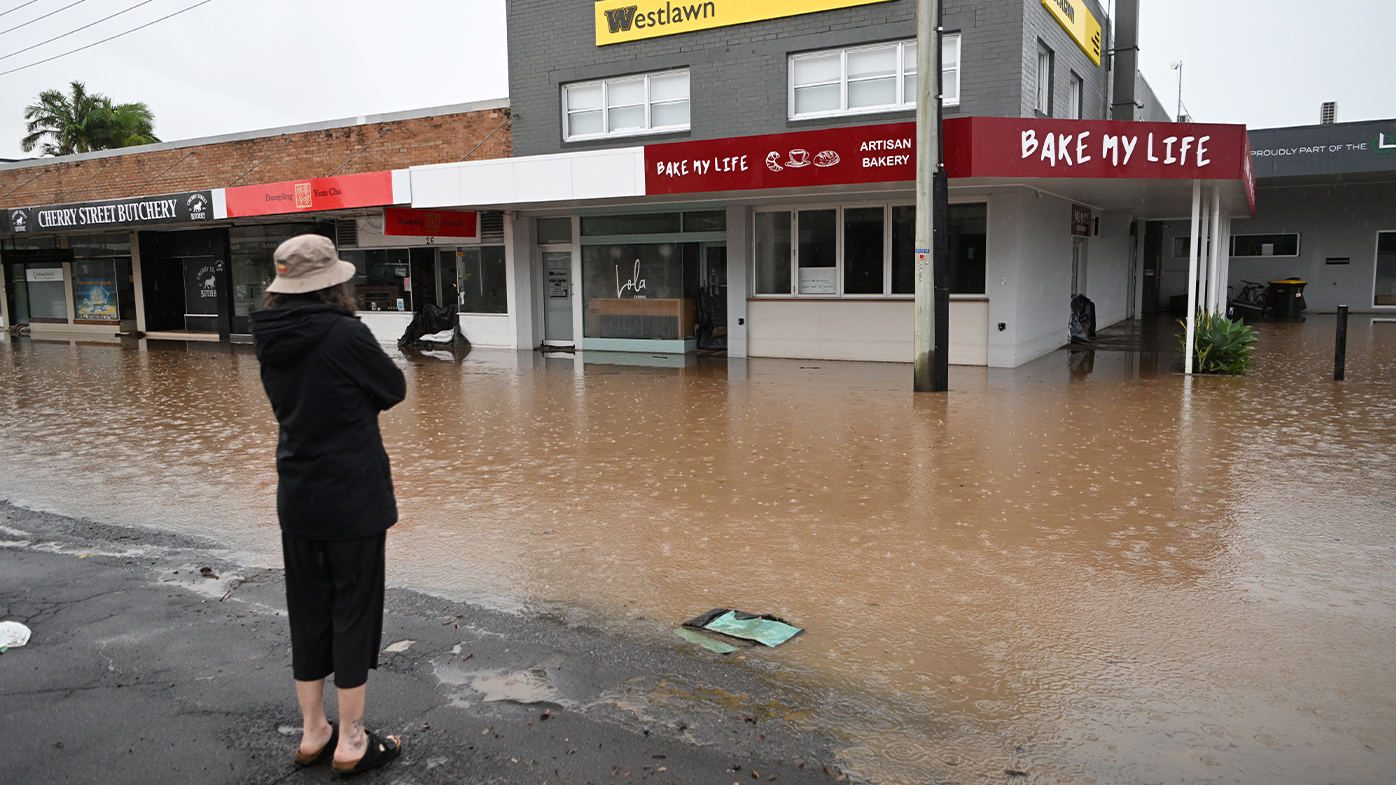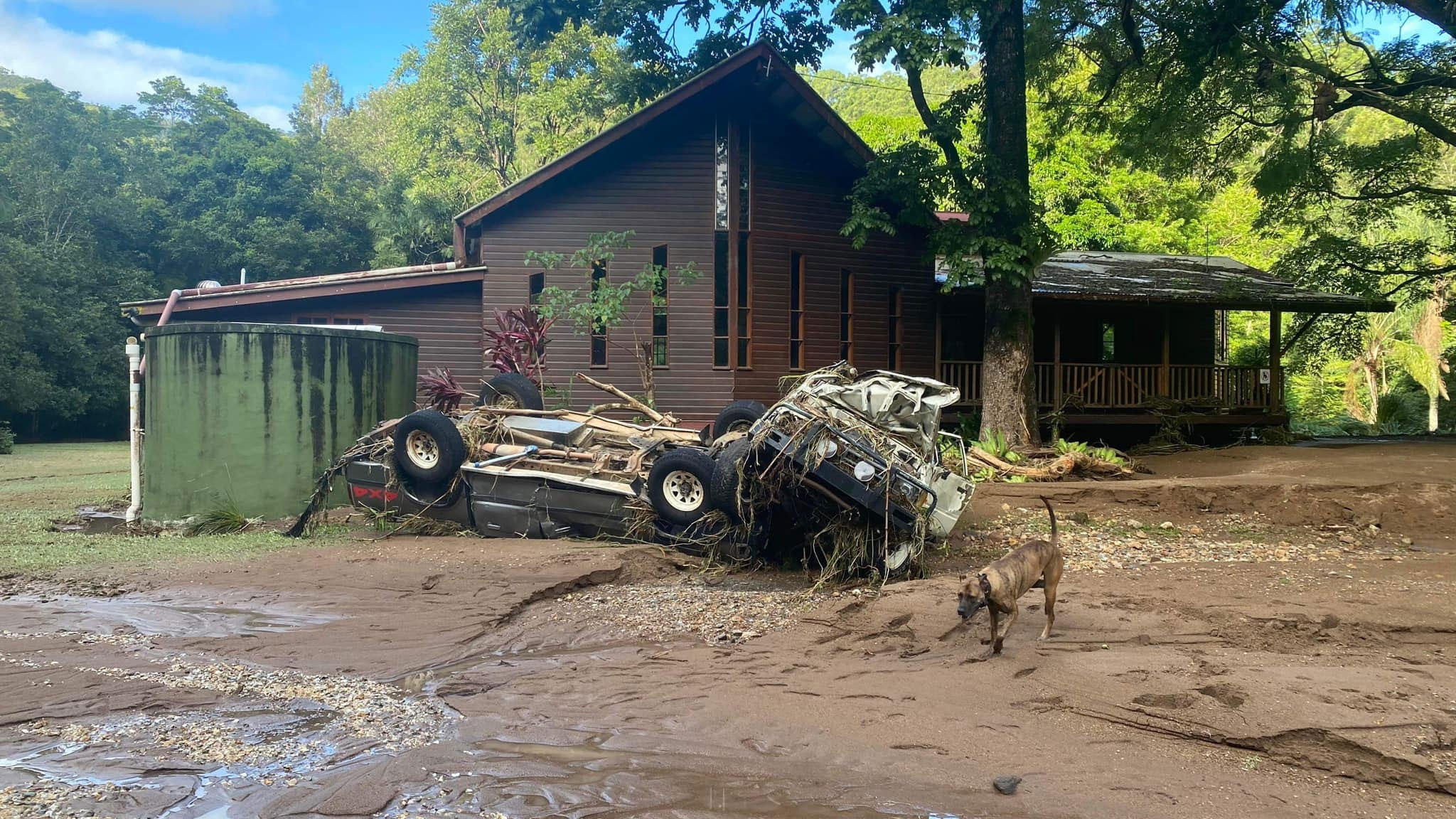In Mullumbimby, there is mud everywhere.
Discarded mattresses, clothes and people’s belongings are piled up on roadsides; the streets smell of sewerage and rubbish.
Locals from the NSW Northern Rivers town where the monumental flood recovery effort is beginning describe the area as like a “warzone” or a scene from the Burning Man Festival.
“You feel like you are in a war or something. Everywhere there is mud, people with shovels and rubbish,” local mother-of-three Max Beeman said.
Another local shared on Facebook: “Mullum looked like a war zone, three people said it reminded them of Burning Man, it reminded me of New York after 9/11.”
The powerful, record-breaking floods have swept away parts of roads and bridges across the Byron Bay hinterland.
Such destruction may take months to rebuild.
Ms Beeman said she felt grateful her house in the higher ground of Bangalow had been spared.
But damage to roads and terrifying landslides meant many living in the hills past Mullumbimby remain trapped and isolated in their homes without power, food or clean water.
“There’s been lots of landslides, all the bridges are broken, they’ve got no power, no water,” Ms Beeman said.
“There’s no shops or anything so people are trying to get food across them by pulley systems.”
In Mullumbimby, many parts of the town are still without power and the water has been turned off.
Supermarkets in Bangalow and Mullumbimby were all out of all fresh fruit and vegetables, as well as bread and basic supplies, Ms Beeman said.
“All the food is running out everywhere,” she said.
“Two days ago, I went to three shops.
“There were mountains of people and there was pretty much no fruit and vegetables, basically no meat and bread.”
EFTPOS systems were also down, meaning people needed to queue up at ATMs to get cash – until the machines ran out of money.
“There were massive queues at all the ATMs of which two of them my husband was lining up in.
“By the time he got halfway through the money ran out.
“I think yesterday at the end of the day, most of the petrol was gone.”
There were reports some Bangalow supermarkets received a delivery this morning, however the stocks had almost run out by lunchtime, Ms Beeman said.
Internet services and mobile phone reception remains patchy in many parts of the area, leaving locals disconnected and struggling to make contact with family and friends, Ms Beeman added.
Amid the devastation, Ms Beeman said it was heartening to see the local community going to heroic efforts to help others.
“There are some amazing people doing brave things,” she said.
“People were trying to get across the river where there were raging rapids, where the bridges are broken and then hiking, walking for miles with water and bits of food to try and take it up to these communities and to check on people. It’s incredible.
“There’s a lot of donations and people are making food and there’s all different drop off places where people are bringing heaps of stuff and then there’s teams of people trying to take them out to the areas.”
In a statement released last night, Bryon Bay Shire Council said it remained extremely concerned about people cut off in the Upper Main Arm and Upper Wilsons Creek areas.
Australian Defence Force personnel had been able to airlift some people out from Upper Wilsons Creek, the council said.
“Additional support from the ADF has been requested to assist with our severely impacted communities,” the council said.
Council staff are out inspecting damage to roads and bridges.
Infrastructure Services Director Phil Holloway said due to the extensive damage in many areas, it was unknown at this stage how long the assessments would take to complete.
“It is devastating and when combined with the damage throughout Northern NSW, Councils have an enormous job ahead of restoring communities, roads and access,” he said.
“Staff have been out clearing and repairing roads to restore access where we can, but in some cases, we are only managing to get about 500 metres into a road before we come across extreme damage.
“This is especially the case in the hinterland with failed causeways and landslips.”
Source: 9News


